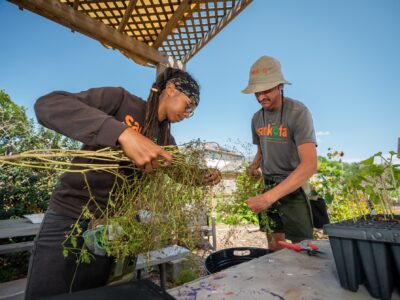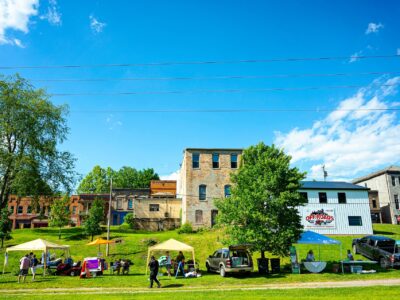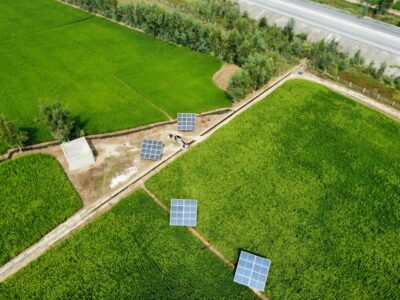Spice manufacturing giant McCormick & Company has pledged to integrate smallholder farmers into their production goals and supply chains. The Maryland-based food company is taking steps to directly source from small farmer cooperatives to support small growers and reduce middleman costs.
This move will also help cut emissions — McCormick has vowed a 42% reduction in purchased goods and services by the end of the decade. The company promises to add 35,000 small farmers to its direct supply chain by 2025.
Focusing on local farmers is important to Michael Okoroafor, the firm’s chief sustainability officer. Born in Nigeria, Okoroafor has first-hand experience with the importance of local growers. He’s encouraged other companies to think of using these smaller farmers not as charity but as a part of a sustainable supply chain plan.
Photo Courtesy McCormick Corporation
“My mom was a subsistence farmer (who) used to grow yams, cassava, corn, bitter leaf, bananas, plantains … and she was able to make enough money from farming to send me to a boarding school, and that changed the trajectory of my life,” he said to Reuters.
In many cases, small operations make very little money due to middlemen, who end up making the lion’s share of profits. By cutting out those middlemen, McCormick gives more money directly to the farmers, a move that particularly benefits Indigenous communities across the globe.
“At the end of the day, nobody cares about what we do; what people care about is making an impact in these communities,” Okoroafor said. “And that’s also how you build an enduring business.”
To date, McCormick is working to improve small farmer resilience in countries such as Turkey, Madagascar, India, Indonesia, and Vietnam.
Additionally, it is offering health insurance and interest-free cash loans to these growers to help increase yields.
The company is launching a pilot program in Vietnam and Indonesia that offers discounted short-term capital financing. In Vietnam, the program is directed specifically at female farmers. McCormick also offers sustainability training for its five key supply needs — oregano, vanilla, black pepper, cinnamon, and red pepper.
Photo Courtesy McCormick Corporation
McCormick is just one of many substantial food brands to look toward small-farmer sustainability. Mars, McDonald’s, and PepsiCo have also supported a new high-profile report from the Sustainable Markets Initiative’s Agribusiness Task Force.
For McCormick, it’s all about their “purpose-led performance” for global business. The company hopes to continue leading other major firms to ensure that all international food industry investments have sustainable and tangible benefits for farmers and, in the end, make customers happy. It sees this as the best way to make its business successful and lasting.
Photo Courtesy McCormick Corporation
“We need an enduring supply chain,” Okoroafor said. “If we don’t have anything to sell, we don’t make any money.”





